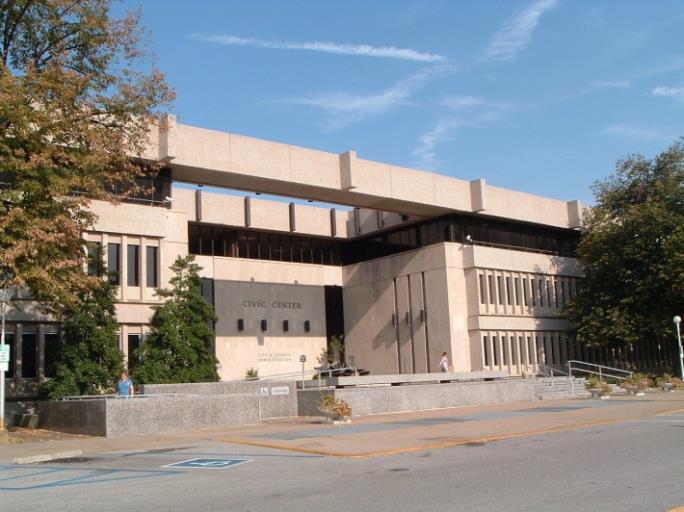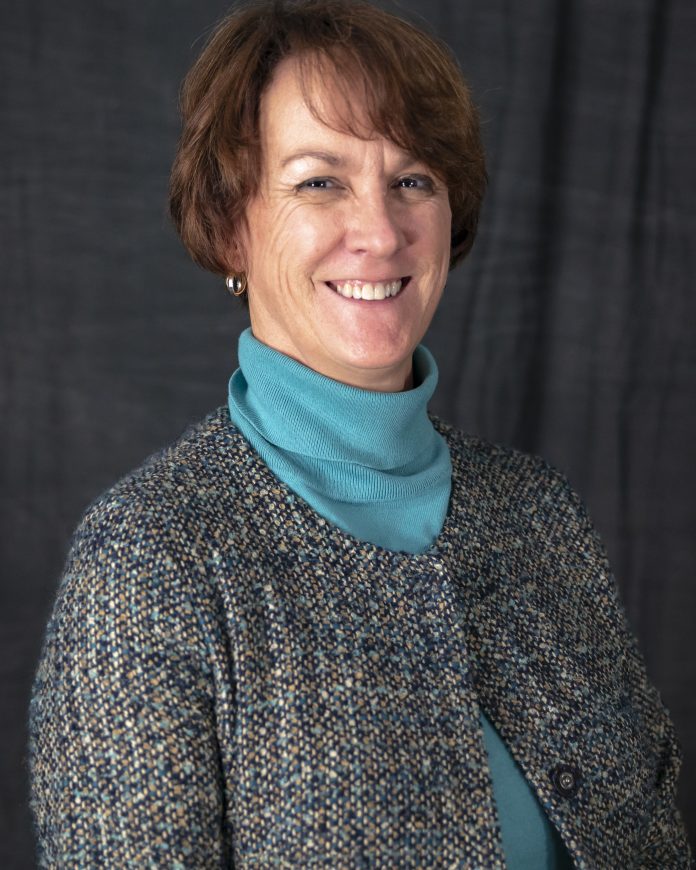EPD DAILY ACTIVITY REPORT
EPD DAILY ACTIVITY REPORT
FOOTNOTE: Â EPD DAILY ACTIVITY REPORT information was provided by the EPD and posted by the City-County-County Observer without opinion, bias, or editing.
Todays Vanderburgh County Board of Commissioners Meeting Agenda
 Vanderburgh County Board of CommissionersÂ
May 23, 2022Â
3:00 pm, Room 301, Civic Center ComplexÂ
1. Call to OrderÂ
2. AttendanceÂ
3. Pledge of AllegianceÂ
-
- 4. Action Item A. County Engineer 1. Request to Award VC23-04-01 “Milling and Resurfacing of County Roads†to J.H. Rudolph & Co., Inc.Â
- 2. Request to Award VC23-04-02 “Young Road Lift Station and Sewer Extension†to Koberstein Contracting, Inc.Â
- 3. Sidewalk Waiver Request: Willow Crossing Subdivision – 13510 & 13800 N Green River RoadÂ
- B. Health Department 1. Great Kids, Inc. Agreement for Haitian Creole TranslationÂ
- C. City Purchasing 1. Heritage Petroleum, LLC Commercial Fueling Contract – 1st ExtensionÂ
- 2. Agreement to Purchase Paper: Alstadt Business FormsÂ
- D. Settlement & Release Agreement – Pierrette Bolduc, Vanderburgh County, City of Evansville, Michael Acton, Lisa BryantÂ
- E. Ordinance No. CO.05-23-009 – An Ordinance Amending Title 17 of the Vanderburgh County Code Concerning Land Use and Zoning for Accessory Dwelling UnitsÂ
- F. Resolution No. CO.R-05-23-004 – Resolution of the Board of Commissioners of Vanderburgh County in Support of Coliseum Improvement ProjectÂ
- 5. Department Head Reports A. Burdette Park 1. Aquatic Center Opening Day = May 27th, 2023Â
- 6. New Business A. Pigeon Creek Multi-County BoardÂ
- 7. Old BusinessÂ
- 8. Consent Items A. Approval of May 9th Board of Commissioners Meeting MinutesÂ
- B. Employment ChangesÂ
-
- C. County Auditor 1. Claims Voucher Reports i. 05/08/2023-05/12/2023Â
- ii. 05/15/2023-05/19/2023Â
- D. County Clerk 1. April 2023 Monthly ReportÂ
- E. County Engineer 1. Report & ClaimsÂ
- F. Commissioners’ Office 1. Appropriation Requests i. General – Superintendent of County BuildingsÂ
-
Drainage Board Immediately FollowingÂ
-
-
-
- ii. Riverboat – CommissionersÂ
- 2. Travel RequestÂ
- G. Old National Events Plaza Waiver Requests 1. Evansville-Vanderburgh County Commission on Homelessness – Homeless Connect Southwest Indiana 2023Â
- 2. Evansville-Vanderburgh County Human Relations Commission – Joint Outreach InitiativeÂ
- H. Prosecutor 1. Surplus RequestÂ
- I. Letter of Support: OJJDP FY 2023 Second Chance Act Addressing the Needs of Incarcerated Parents and Their Minor ChildrenÂ
- A. First Reading of Rezoning Ordinance VC-4-2023Â
- B. Final Reading of Rezoning Ordinance VC-3-2023 with Amended UDCÂ
- C. Final Reading of Rezoning Ordinance VC-1-2023 with Amended UDCÂ
-
-
9. RezoningÂ
Petitioner: Adam AkinÂ
Address: 200 S. Peerless RoadÂ
Request: Change from R-1 to R-2Â
Petitioner: University Shopping Center, Inc.Â
Address: 4595 University DriveÂ
Request: Change from C-2 to M-1 with Amended UDCÂ
Petitioner: Reisinger Investments, LLCÂ
Addresses: 4805 Detroy Rd, 4001 Big Cynthiana Rd, & 5101 New Harmony RdÂ
Request: Change from Ag/C-4 & C4 with UDC to M-1 with an Amended UDCÂ
10. Public CommentÂ
11. AdjournmentÂ
GAIN’S Future: EVSC & Ten Adams Working TogetherÂ
PART TWOÂ Â Â
GAIN’s Future: EVSC & Ten Adams Working TogetherÂ
By Ann M. Ennis
MAY 23, 2023
(During the April 10 EVSC School Board meeting trustees voted to sign a contract with Ten Adams, a local, marketing and advertising firm, for website design. The EVSC will spend $250,000 from ESSER funding (Elementary and Secondary School Emergency Relief funds) for the project supporting its trademarked GAIN framework)
The $250,000 Ten Adams EVSC contract and scope of work came about because EVSC leadership felt that existing online GAIN (Growth in Academics through Innovation and Neuroeducation) materials and messaging on the EVSC website are inadequate. The expanded partnership with Ten Adams will ensure the GAIN site becomes easily accessible and convenient for EVSC staff, according to EVSC Superintendent Dr. David Smith. Â
The Ten Adam’s website notes that the agency is “100% Hospital and Health-system focused.â€Â It lists Core Capabilities as “services (that) are designed to help hospitals and health systems elevate their brand in the marketplace and be the catalyst that drives transformational revenue growth.†This leader in healthcare revenue growth and branding is a unanimous choice for EVSC trustees to assist with GAIN website improvements.
Because of previous work by Ten Adams with GAIN, Dr. Smith said there was no bid process or publicly documented evaluation of the vendor for this agreement.
Per the Indiana State Board of Accounts Schools & Township, school districts purchasing services are excepted from Indiana state code requiring competitive bids for services. If there are no goods or materials, and the contract is service only, then school districts are free to not seek bids and to simply follow their local purchasing policies. (note IC 5-22-6-1 and IC 5-22-6-2)Â EVSC Purchasing Policy 6320 indicates a vetting process for purchases of materials and goods above $150,000. Services — such as website, online portals, and messaging — are not clearly referenced for procedure and vetting in this purchasing policy.
This is not the first major neuroeducation contract for EVSC. One example, retired EVSC teacher (2022) Laura Ballard noted, is the EVSC contracts with Mass Insight, a research company that has provided data and brain science guidance, through multiple large contracts. Mass Insight has had EVSC contracts since 2012. “Are we going to start doing the same for GAIN to Ten Adams?†she asked.
The amount being paid to Ten Adams seems to be open to interpretation. The Scope of Work quotes from $160,000 to $180,000, but the Aril 10 vote was to expend $250,000 —Â a $70,000 difference.Â
In the end, the goal of EVSC and a major reason for the project remains improving curriculum maps, as per the April 13 Trustees meeting and other discussions. Currently, many feel that EVSC’s official curriculum maps are cumbersome and largely resourced school-by-school. Curriculum maps are lesson plans written by a single source, in this case EVSC curriculum administrators in partnership with classroom educators. They are online and help access education support materials in the absence of textbooks. Online resources are rapidly replacing textbooks in many K-12 education systems throughout the nation.Â
This website, among other things, will certainly improve EVSC curriculum maps.Â
Ballard said that in her tenure with EVSC, she found that “GAIN is not at all a waste of time,†but there remains a common opinion for many that it is just another acronym. “There is data that comes from GAIN that is useful, but it is up to the teacher to filter through and implement it,†she said. “And oftentimes GAIN feels like another program being thrown at teachers.
Documents discussed in this series are viewable through https://go.boarddocs.com/in/evsc/Board.nsf/Public
Select “Meetings†on the upper right graybar; then under “Featured†on left select “2023â€; select “April 10, 2023â€; “View Agendaâ€; at Agenda Item 5.06 select the Attachment Icon. This will provide the two .pdf documents.
The City-County Observer posted this article without bias or editing.
Youth First, Inc. Receives $20,000 from the New York Life Foundation
Youth First, Inc. Receives $20,000 from the New York Life Foundation
Grant to Provide Training to Support Bereaved Youth
MAY 23, 2023
Youth First, Inc., a leading nonprofit that transforms and strengthens the lives of young people and their families by providing Master’s level social workers in area schools and prevention programs for youth and families, received today a $20,000 Grief Reach Grant from the New York Life Foundation.
This support provides training that will strengthen Youth First’s capacity to assist children who experience the death of a loved one. Youth First serves at least 1,400 bereaved children a year through school-based social work services and programs.
“Due to the increased need to effectively provide bereavement services to a recovering pandemic society, we decided to dedicate this cycle of our Grief Reach Grants to capacity building,†said Maria Collins, vice president, of New York Life Foundation. “The Grief Reach grants will help nonprofits to focus on overall organizational sustainability while meeting the challenges of increased demand for bereavement support.â€
“We are so grateful for this grant because it will increase our team’s ability to care for kids with greater skill and compassion,†said Parri O. Black, Youth First’s President & CEO. “Grieving students who receive effective support are more likely to make healthy decisions, re-engage at school, and focus on hopeful futures.â€
The New York Life Foundation created the Grief Reach program to increase capacity and access to grief support by investing in local resources and services. Over 400 Grief Reach grants totaling nearly $14 million have been awarded since the program’s inception in 2011. The New York Life Foundation has been one of the leading funders of the childhood bereavement field, investing more than $70 million to date in support of grieving children and their families.
Youth First embeds prevention programs and 83 skilled mental health professionals in 117 school buildings across 13 Indiana counties, where they become specialized mentors for students and prevention coaches for parents and teachers. Youth First Social Workers build caring relationships, foster readiness for positive change, and boost resiliency along with other valuable life skills.
Research shows that building these protective factors in young people reduces risk factors and is essential to preventing addiction, violence, suicide, and similar tragic outcomes. The organization’s positive work and strategies are driving growth, with more schools seeking Youth First’s help to address the growing need for mental health support for students.
About Youth First, Inc.:
Youth First’s mission is to strengthen youth and families through evidence-based programs that promote mental health, prevent substance misuse, and maximize student success. Youth First partners with 117 schools across 13 Indiana counties to provide prevention programs and 83 Master’s level social workers who assess needs, develop and implement prevention plans, and connect students and their families to vital resources. Youth First also offers community programs involving parents and caregivers to strengthen families. For more information about Youth First, please visitityouthfirstinc.org.
About the New York Life Foundation:
Inspired by New York Life’s tradition of service and humanity, the New York Life Foundation has, since its founding in 1979, provided over $415 million in charitable contributions to national and local nonprofit organizations. The Foundation supports programs that benefit young people, particularly in the areas of educational enhancement, childhood bereavement, and social justice. The Foundation also encourages and facilitates the community involvement of employees and agents of New York Life through its Volunteers for Good and Grief-Sensitive Schools programs. To learn more, please visit www.newyorklifefoundation.org.
Â
Lt. Gov. Coleman Announces Nearly $17 Million in Federal Funding for Student Mental Health
U.S. Department of Education selected West Kentucky and Green River Regional educational cooperatives for funding
EDDYVILLE / BOWLING GREEN, Ky. (May 22, 2023) – Today, Lt. Gov. Jacqueline Coleman joined students and local educational leaders to announce nearly $17 million in federal funding that will increase access to school-based mental health services.
The U.S. Department of Education selected two educational cooperatives that applied for funding. The West Kentucky Educational Cooperative (WKEC) will receive $2.9 million over five years and the Green River Regional Educational Cooperative (GRREC) will receive $13.9 million over five years.
“As a teacher, I dedicated my career to serving my community from the classroom,†said Lt. Gov. Coleman. “In our education-first administration, Kentucky’s students and their well-being remain top of mind. Now is the time to invest heavily in our students – beyond the tangible objects like facilities and books. I applaud the U.S. Department of Education for this funding, the educational cooperatives for their leadership and the participating school districts for prioritizing their students’ mental health.â€
WKEC will use the funding to create Partner and Connect: MSU/WKEC Mental Health Providers Academy. Through the program, WKEC will partner with Murray State University to train and credential 30 mental health providers and place them in 14 school districts in the region.
“WKEC is thrilled to be able to offer this opportunity to train mental health counselors through our recently received grant,†said Gretchen Wetzel, executive director of WKEC. “These grant funds will be used to allay the cost associated with counselor certification through Murray State University. We will be able to provide opportunities to fourteen school districts to increase their mental health counseling services, and that is just what districts in our region need right now.â€
“As school districts navigate the educational landscape in a post-pandemic environment, this innovative concept and partnership between the WKEC, Murray State University and local school districts will strengthen our ability to educate students in the region,†said Dr. David Meinschein, superintendent of Livingston County Schools. “There is a critical need to increase access to school-based counseling professionals and provide additional mental health training to other staff. As a Regent of Murray State University, I am proud of the work taking place. As a superintendent of a local school district, I am thankful to have the support of the WKEC and MSU.â€
GRREC will use the funds to initiate Project ACCESS (Acquiring Clinical Counselors for Equitable Student Services in Mental Health). In partnership with Western Kentucky University, GRREC will recruit, train and hire 45 licensed mental health counselors who will serve students in all 184 schools in the GRREC region.
“The Project ACCESS grant empowers us to create a significant, positive influence on students’ overall well-being,†said Bart Flener, executive director of GRREC. “By fostering collaborations with the community and implementing innovative approaches, we are defining a new benchmark for exceptional mental health support in educational environments. We will join forces to nurture a healthier and more resilient future for our youth.â€
“Receiving the Project ACCESS grant is a significant milestone in our mental health journey,†said Todd Hazel, Project ACCESS director. “With this grant, we are empowered to create a transformative impact on students’ well-being, paving the way for a healthier and more resilient future for our youth. Through strategic community partnerships and innovative approaches, we are setting the standard for exemplary mental health support in educational settings. Together, we will build a brighter tomorrow for our students, fostering their growth and success.â€
“We live in a society ever-increasing in complexity,†said Dr. Corinne Murphy, dean at WKU College of Education & Behavioral Sciences. “The resulting increase in mental and behavioral health needs is apparent in our communities and our schools. WKU is proud to join GRREC in assisting school districts to access highly skilled mental health professionals eager to assist schools with establishing healthy school-wide environments in which students can grow and learn. These professionals are also prepared to assist with the more acute needs of students experiencing challenges in their day-to-day lives. The impact of Project ACCESS will be felt daily in the halls of our schools and the communities they support.â€
Traffic Advisory: Motorcyclists Are Traveling From California To Washington D.C. To Visit The Vietnam Veterans Memorial
Gibson County – Tuesday afternoon, May 23, Indiana State Police will be shutting down portions of US 41 near Warrenton Road and I-64 eastbound at US 41 while several hundred motorcyclists stop at Flying J Travel Center located at US 41 and Warrenton Road. The motorcyclists are traveling from California to Washington D.C. to visit the Vietnam Veterans Memorial. The group left California on May 17 and they are scheduled to arrive in Washington D.C. on May 27. The motorcyclists are scheduled for a gas stop and a brief break at the Flying J Travel Center before continuing east on I-64 to Corydon, IN. The group is expected to arrive at approximately 2:15 p.m. and depart at approximately 3:00 p.m.
Individuals planning to show their support are encouraged to find a safe place off the roadway. Parking along I-64 is prohibited. For more information concerning this event, visit rftw.us.
Approximate Times of Highway Closings (Times are subject to change).
Approximately 2:15 p.m. (CST) – Highways are expected to be closed for no more than 15 minutes.
- US 41 northbound will be closed just south of I-64 while motorcyclists exit I-64 east to US 41 north.
- US 41 southbound lanes will be closed at Warrenton Road while motorcyclists turn west onto Warrenton Road to Flying J Travel Center.
Approximately 3:00 p.m. (CST) – Highways are expected to be closed for no more than 15 minutes.
- US 41 southbound lanes at Warrenton Road will be closed while motorcyclists exit Flying J Travel Center.
- I-64 East just west of US 41 will be closed while motorcyclists enter I-64 East from US 41S.
Todd Rokita Invites Hoosiers To Race Over To IndianaUnclaimed.govÂ
Attorney General Todd Rokita invites Hoosiers to start their search engines this race month by heading over to IndianaUnclaimed.gov to claim their funds. Â
“This race day is the perfect time to search unclaimed property and see if you’re a winner,†Attorney General Rokita said. “I’m waving the green flag to encourage Hoosiers to take a ‘brake’ from work to search and recover what is rightfully theirs.â€Â
Last year, Attorney General Rokita’s Unclaimed Property Division returned $62 million to Hoosiers, and you could be next. You might just recover enough to buy a lot of milk in Victory Lane. Â
Search for your name at the IndianaUnclaimed.gov database — which, by the way, includes some Hoosiers who share a name with some famous racers such as Mears, Foyt, Unser, and Andretti who still have funds waiting to be claimed.Â
Recovering your unclaimed property is safe, secure, and simple. Attorney General Rokita recommends Hoosiers get in the driver’s seat and check for these types of property that might go unclaimed:   Â
- Unclaimed wages or commissions   Â
- Money orders   Â
- Safety deposit box contents   Â
- Savings and checking accountsÂ
- RefundsÂ
- Overpayments such as:Â Â Â Â Â
- Credit card balances    Â
- Cell phone bills   Â
- DMV payments Â
Once unclaimed property is in its custody, the Unclaimed Property Division conducts an outreach effort to locate the rightful owners or heirs.   Â
Individuals and/or businesses have 25 years in which to claim money once it is reported to the Unclaimed Property Division.Â
Just this year we’ve already returned over $30 million to Hoosiers, with nearly $800 million just waiting to be claimed, and you could be next to cross the finish line.Â
Make a pit stop and see what you could be missing at IndianaUnclaimed.gov or text CLAIM to 46220 to search your name, family or business.Â










